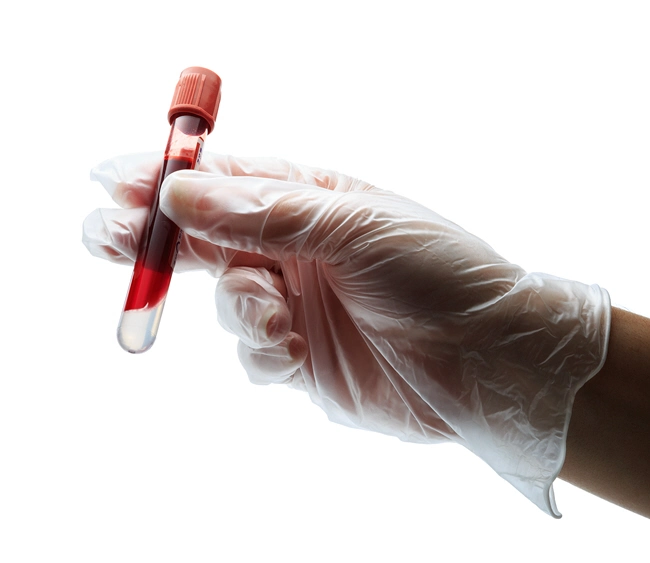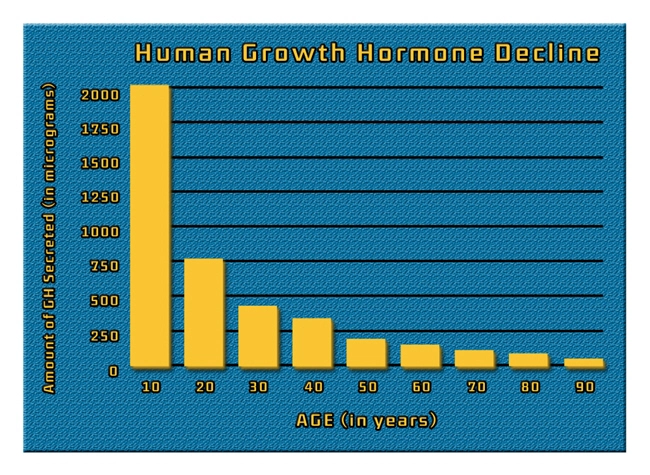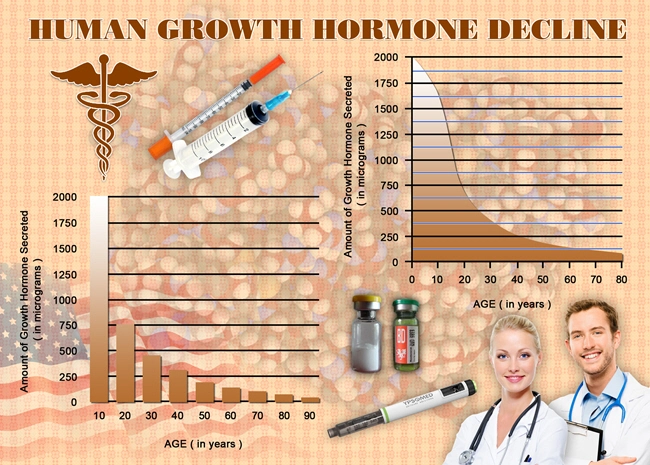
Introduction
Erectile dysfunction (ED) is a prevalent condition among American males, often attributed to a myriad of physiological and psychological factors. While cardiovascular issues and hormonal imbalances are commonly discussed, the role of nerve damage in ED is less frequently highlighted yet equally significant. This article delves into the intricate relationship between nerve health and sexual function, offering insights into how nerve damage can lead to ED and exploring potential treatment avenues.
The Physiology of Erection
An erection is a complex process that involves the brain, nerves, hormones, and blood vessels. When a man is sexually aroused, signals from the brain travel through the spinal cord and nerves to the penis, triggering the release of nitric oxide. This chemical relaxes the smooth muscles in the penile arteries, allowing increased blood flow into the corpora cavernosa, the spongy tissue that fills with blood to cause an erection.
Nerve Damage and Its Impact on Erection
Nerve damage, or neuropathy, can disrupt this delicate process at various points. The nerves critical for an erection include the autonomic nerves, which control involuntary functions, and the somatic nerves, which manage voluntary actions like muscle contraction. Damage to these nerves can occur due to several reasons, including diabetes, trauma, surgical complications, or chronic diseases.
Diabetes, a widespread health issue among American males, is a leading cause of peripheral neuropathy, which can affect the nerves responsible for erectile function. High blood sugar levels can damage the blood vessels and nerves over time, leading to reduced sensation and impaired nerve signaling necessary for an erection.
Surgical and Traumatic Causes
Surgeries, particularly those involving the pelvic area such as prostatectomy for prostate cancer, can inadvertently damage the nerves responsible for erections. Similarly, traumatic injuries from accidents or sports can sever or compress nerves, leading to ED. The extent of nerve damage often correlates with the severity of ED, with complete nerve transection typically resulting in more significant dysfunction.
Chronic Conditions and Nerve Health
Beyond diabetes and trauma, other chronic conditions like multiple sclerosis and Parkinson's disease can also contribute to nerve damage and subsequent ED. These neurodegenerative diseases affect the central nervous system, which can disrupt the neural pathways essential for sexual arousal and erection.
Diagnosis and Treatment
Diagnosing nerve-related ED involves a comprehensive medical evaluation, including neurological assessments and possibly nerve conduction studies. Treatment strategies aim to address the underlying cause of nerve damage while also managing ED symptoms.
For diabetic patients, stringent blood sugar control is crucial to prevent further nerve damage. Medications like phosphodiesterase type 5 (PDE5) inhibitors, such as sildenafil, can help improve blood flow and facilitate erections despite some degree of nerve damage. For those with severe nerve damage, more invasive treatments like penile implants may be considered.
Emerging Therapies and Future Directions
Research into nerve regeneration and neuroprotective therapies offers hope for future treatments. Stem cell therapy and nerve growth factors are being explored as potential means to repair damaged nerves and restore function. Additionally, advances in surgical techniques aim to minimize nerve damage during procedures, potentially reducing the incidence of post-operative ED.
Conclusion
Understanding the role of nerve damage in erectile dysfunction is crucial for American males seeking effective treatment. By recognizing the signs of nerve-related ED and pursuing appropriate medical interventions, men can improve their sexual health and overall quality of life. As research progresses, the future holds promise for innovative therapies that may further enhance the management of this challenging condition.
Contact Us Today For A Free Consultation
Dear Patient,
Once you have completing the above contact form, for security purposes and confirmation, please confirm your information by calling us.
Please call now: 1-800-380-5339.
Welcoming You To Our Clinic, Professor Tom Henderson.

- Exploring New Horizons: Overcoming Erectile Dysfunction to Rekindle Romantic Intimacy [Last Updated On: February 15th, 2025] [Originally Added On: February 15th, 2025]
- Embarking on the Journey of Triumph: A Comprehensive Guide to Conquer Erectile Dysfunction [Last Updated On: February 25th, 2025] [Originally Added On: February 25th, 2025]
- Triumph Over Trials: Overcoming Battles with Erectile Dysfunction [Last Updated On: February 26th, 2025] [Originally Added On: February 26th, 2025]
- Alchemy of Attraction: Grasping the Biomechanical Puzzle of Erectile Dysfunction [Last Updated On: February 27th, 2025] [Originally Added On: February 27th, 2025]
- Breaking the Stigma: Understanding and Overcoming Erectile Dysfunction [Last Updated On: February 28th, 2025] [Originally Added On: February 28th, 2025]
- Unraveling Misconceptions: A Comprehensive Analysis of Erectile Dysfunction [Last Updated On: February 28th, 2025] [Originally Added On: February 28th, 2025]
- Breaking Through the Shadows: Unveiling the Psychological Implications of Erectile Dysfunction [Last Updated On: March 1st, 2025] [Originally Added On: March 1st, 2025]
- The Pill or The Promise: Unveiling The Comparative Efficiency of Erectile Dysfunction Medications [Last Updated On: March 2nd, 2025] [Originally Added On: March 2nd, 2025]
- Enhancing Intimacy in Modern Relationships: The Role of Medical Interventions, Psychological Counseling, and Lifestyle Changes in Improving Sexual Health [Last Updated On: March 3rd, 2025] [Originally Added On: March 3rd, 2025]
- Navigating the Path to Recovery: Understanding and Managing Erectile Dysfunction [Last Updated On: March 3rd, 2025] [Originally Added On: March 3rd, 2025]
- Comprehensive Guide to Understanding and Treating Erectile Dysfunction [Last Updated On: March 4th, 2025] [Originally Added On: March 4th, 2025]
- Exploring the Psychological Impact of Erectile Dysfunction on Men and Relationships [Last Updated On: March 5th, 2025] [Originally Added On: March 5th, 2025]
- Understanding Erectile Dysfunction: Causes, Treatment, and Medication Efficacy [Last Updated On: March 6th, 2025] [Originally Added On: March 6th, 2025]
- The Evolution of Erectile Dysfunction Treatments: From Ancient Remedies to Modern Innovations [Last Updated On: March 7th, 2025] [Originally Added On: March 7th, 2025]
- Revolutionizing Erectile Dysfunction Treatment: Innovations, Telemedicine, and Personalized Care [Last Updated On: March 8th, 2025] [Originally Added On: March 8th, 2025]
- The Vascular Role in Erectile Dysfunction: Understanding, Treatment, and Holistic Management [Last Updated On: March 9th, 2025] [Originally Added On: March 9th, 2025]
- Unveiling the Battle: Testosterone's Impact on Erectile Dysfunction in American Men [Last Updated On: March 12th, 2025] [Originally Added On: March 12th, 2025]
- Lifestyle Changes to Combat Erectile Dysfunction in American Males [Last Updated On: March 13th, 2025] [Originally Added On: March 13th, 2025]
- Overcoming Erectile Dysfunction: Causes, Treatments, and Inspiring Recovery Stories [Last Updated On: March 13th, 2025] [Originally Added On: March 13th, 2025]
- Unveiling the Truth: Dispelling Myths About Erectile Dysfunction in American Men [Last Updated On: March 15th, 2025] [Originally Added On: March 15th, 2025]
- Exploring Alternative Therapies for Erectile Dysfunction in American Males [Last Updated On: March 17th, 2025] [Originally Added On: March 17th, 2025]
- Telemedicine's Role in Managing Erectile Dysfunction: Benefits and Challenges [Last Updated On: March 18th, 2025] [Originally Added On: March 18th, 2025]
- Innovative Therapies and Technology Transforming Erectile Dysfunction Treatment in the U.S. [Last Updated On: March 18th, 2025] [Originally Added On: March 18th, 2025]
- Erectile Dysfunction: Understanding, Treating, and Empowering American Men [Last Updated On: March 19th, 2025] [Originally Added On: March 19th, 2025]
- Global Approaches to Erectile Dysfunction: Treatments Compared for American Males [Last Updated On: March 19th, 2025] [Originally Added On: March 19th, 2025]
- Erectile Dysfunction: Couples' Guide to Understanding, Treating, and Overcoming ED Together [Last Updated On: March 19th, 2025] [Originally Added On: March 19th, 2025]
- Managing Erectile Dysfunction: Medical, Lifestyle, and Mental Health Approaches [Last Updated On: March 19th, 2025] [Originally Added On: March 19th, 2025]
- Stress, Sleep, and ED: Strategies for American Men to Enhance Sexual Health [Last Updated On: March 19th, 2025] [Originally Added On: March 19th, 2025]
- Boosting Libido and Combating ED with Diet and Exercise: A Guide for American Men [Last Updated On: March 20th, 2025] [Originally Added On: March 20th, 2025]
- Managing Erectile Dysfunction: A Holistic Guide for American Men [Last Updated On: March 21st, 2025] [Originally Added On: March 21st, 2025]
- Exploring Treatments for Erectile Dysfunction: Pills, Injections, and Beyond [Last Updated On: March 21st, 2025] [Originally Added On: March 21st, 2025]
- Natural Remedies and Lifestyle Changes to Combat Erectile Dysfunction in American Men [Last Updated On: March 21st, 2025] [Originally Added On: March 21st, 2025]
- Erectile Dysfunction in the U.S.: Prevalence, Impacts, and Holistic Management Approaches [Last Updated On: March 22nd, 2025] [Originally Added On: March 22nd, 2025]
- Erectile Dysfunction: Causes, Treatments, and Lifestyle Impact on American Men [Last Updated On: March 23rd, 2025] [Originally Added On: March 23rd, 2025]
- Erectile Dysfunction: Costs, Treatments, and Financial Management Strategies for American Males [Last Updated On: March 23rd, 2025] [Originally Added On: March 23rd, 2025]
- Counseling's Vital Role in Treating Erectile Dysfunction: A Comprehensive Approach [Last Updated On: March 23rd, 2025] [Originally Added On: March 23rd, 2025]
- Vascular Health's Crucial Role in American Males' Erectile Function [Last Updated On: March 23rd, 2025] [Originally Added On: March 23rd, 2025]
- Exercise as a Holistic Approach to Managing Erectile Dysfunction in American Men [Last Updated On: March 23rd, 2025] [Originally Added On: March 23rd, 2025]
- CBT: A Powerful Therapy for American Males with Erectile Dysfunction [Last Updated On: March 24th, 2025] [Originally Added On: March 24th, 2025]
- Celebrity Influence Boosts Awareness and Treatment of Erectile Dysfunction in Men [Last Updated On: March 24th, 2025] [Originally Added On: March 24th, 2025]
- Erectile Dysfunction: From Taboo to Treatable - Media and Medical Insights for American Men [Last Updated On: March 24th, 2025] [Originally Added On: March 24th, 2025]
- Restorative Sleep: A Key to Enhancing Erectile Function in American Males [Last Updated On: March 24th, 2025] [Originally Added On: March 24th, 2025]
- Male Anatomy and Erectile Dysfunction: Causes, Diagnosis, and Treatment Strategies [Last Updated On: March 24th, 2025] [Originally Added On: March 24th, 2025]
- Work Stress and Its Impact on Men's Sexual Health: Understanding ED [Last Updated On: March 24th, 2025] [Originally Added On: March 24th, 2025]
- Personalized Approaches to Treating Erectile Dysfunction in American Men [Last Updated On: March 24th, 2025] [Originally Added On: March 24th, 2025]
- Erectile Dysfunction's Impact on Self-Esteem: Strategies for American Males to Rebuild Confidence [Last Updated On: March 24th, 2025] [Originally Added On: March 24th, 2025]
- Understanding and Overcoming Performance Anxiety and Erectile Dysfunction in Men [Last Updated On: March 25th, 2025] [Originally Added On: March 25th, 2025]
- Transformative ED Treatments: Success Stories and Innovations Across U.S. Clinics [Last Updated On: March 25th, 2025] [Originally Added On: March 25th, 2025]
- Chronic Illness and ED: Understanding Links and Managing Sexual Health in American Males [Last Updated On: March 25th, 2025] [Originally Added On: March 25th, 2025]
- Erectile Dysfunction: An Early Indicator of Cardiovascular Disease in American Males [Last Updated On: March 25th, 2025] [Originally Added On: March 25th, 2025]
- Wearable Technology: A New Frontier in Managing Erectile Dysfunction [Last Updated On: March 25th, 2025] [Originally Added On: March 25th, 2025]
- Erectile Dysfunction: Navigating Impact, Communication, and Recovery in Relationships [Last Updated On: March 25th, 2025] [Originally Added On: March 25th, 2025]
- Essential Nutrients for Enhancing Sexual Health and Combating Erectile Dysfunction [Last Updated On: March 25th, 2025] [Originally Added On: March 25th, 2025]
- Cutting-Edge ED Treatments: Shockwave, Gene, and Stem Cell Therapies Offer New Hope [Last Updated On: March 25th, 2025] [Originally Added On: March 25th, 2025]
- Managing Erectile Dysfunction: Communication, Intimacy, and Professional Help for American Men [Last Updated On: March 26th, 2025] [Originally Added On: March 26th, 2025]
- PDE5 Inhibitors: Revolutionizing Erectile Dysfunction Treatment in American Males [Last Updated On: March 26th, 2025] [Originally Added On: March 26th, 2025]
- Erectile Dysfunction and Mental Health: Navigating Depression and Anxiety in American Men [Last Updated On: March 26th, 2025] [Originally Added On: March 26th, 2025]
- Revolutionizing Men's Health: Advanced Treatments for Erectile Dysfunction [Last Updated On: March 26th, 2025] [Originally Added On: March 26th, 2025]
- New Medications and Therapies Revolutionizing Erectile Dysfunction Treatment [Last Updated On: March 26th, 2025] [Originally Added On: March 26th, 2025]
- Understanding Erections and Managing Erectile Dysfunction in American Men [Last Updated On: March 27th, 2025] [Originally Added On: March 27th, 2025]
- Navigating Erectile Dysfunction: Rebuilding Romance and Intimacy in Relationships [Last Updated On: March 27th, 2025] [Originally Added On: March 27th, 2025]
- Natural Remedies for Erectile Dysfunction: Ginseng, L-Arginine, and Horny Goat Weed [Last Updated On: March 27th, 2025] [Originally Added On: March 27th, 2025]
- Managing Performance Anxiety and ED: Strategies for American Men [Last Updated On: March 28th, 2025] [Originally Added On: March 28th, 2025]
- Enhancing Sexual Health: Diet, Lifestyle, and Medical Strategies for American Men [Last Updated On: March 28th, 2025] [Originally Added On: March 28th, 2025]
- Exploring Non-Drug Treatments for Erectile Dysfunction in American Men [Last Updated On: March 28th, 2025] [Originally Added On: March 28th, 2025]
- Holistic Approaches to Overcome Erectile Dysfunction in American Males [Last Updated On: March 28th, 2025] [Originally Added On: March 28th, 2025]
- Erectile Dysfunction: Causes, Management Strategies, and Expert Health Tips [Last Updated On: March 28th, 2025] [Originally Added On: March 28th, 2025]
- Physical Therapy: A Promising Approach to Treating Erectile Dysfunction in American Males [Last Updated On: March 29th, 2025] [Originally Added On: March 29th, 2025]
- Erectile Dysfunction and Prostate Health: Understanding the Vital Connection for Men [Last Updated On: March 30th, 2025] [Originally Added On: March 30th, 2025]
- Erectile Dysfunction: Holistic Approaches for American Men's Sexual Health [Last Updated On: March 30th, 2025] [Originally Added On: March 30th, 2025]
- Navigating Erectile Dysfunction: A Comprehensive Guide to Consultations and Treatment [Last Updated On: March 31st, 2025] [Originally Added On: March 31st, 2025]
- Managing Erectile Dysfunction: The Power of Positivity and Mental Strategies [Last Updated On: April 1st, 2025] [Originally Added On: April 1st, 2025]
- Erectile Dysfunction: Understanding Causes, Breaking Stigma, and Exploring Modern Treatments [Last Updated On: April 3rd, 2025] [Originally Added On: April 3rd, 2025]
- Transforming ED into Deeper Intimacy: A Journey for American Couples [Last Updated On: April 4th, 2025] [Originally Added On: April 4th, 2025]
- Erectile Dysfunction: Personalized Treatment Approaches and Dosage Considerations [Last Updated On: April 5th, 2025] [Originally Added On: April 5th, 2025]
- Future of ED Treatment: Innovations in Drug Delivery and Technology [Last Updated On: April 5th, 2025] [Originally Added On: April 5th, 2025]
- Erectile Dysfunction: From Research Innovations to Practical Solutions and Future Directions [Last Updated On: April 6th, 2025] [Originally Added On: April 6th, 2025]
- Genetic Factors in ED: Personalizing Treatment for American Males [Last Updated On: April 9th, 2025] [Originally Added On: April 9th, 2025]
- Erectile Dysfunction Medications: Enhancing Confidence and Performance in American Males [Last Updated On: April 9th, 2025] [Originally Added On: April 9th, 2025]
- Diabetes and Erectile Dysfunction: Understanding Links, Diagnosis, and Management Strategies [Last Updated On: April 10th, 2025] [Originally Added On: April 10th, 2025]









